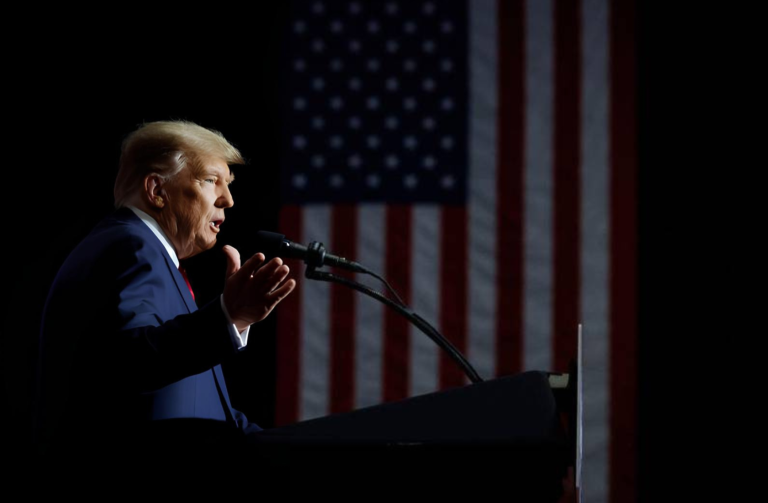
How Should The Republican Party Foreign Policy Strategy Be Shaped?
Here’s why Trump should not give up constructive engagement and inclusivity while pursuing peace through strength.
By | Lorenzo Izzi,
APRIL 06, 2024 | 04:09 PM

Global problems require global solutions, a wise man once said. However, although the 21st Century’s problems have become increasingly global, the world is witnessing a period of closeness and unwillingness to deal with such problems together, and Donald Trump appears to be the perfect product of such a closure from the United States. However, here is why the Republican Party’s foreign policy promises are a symptom of blindness.
Firstly, increasing cooperation between Russia and China will take on board all the BRICS in an attempt to counter bits of the liberal international order, though the prospects for a new Cold-War style foreign policy are not to be seen over the horizon. It is likely that, in 2025, a new wind of contestation will arise, particularly over U.S. led global financial institutions, like the IMF or the World Bank, just like in 2016, when China set up the Asian Investment Infrastructure Bank (AIIB). In response to these dynamics, the U.S. should reaffirm its centrality in the international economy. Thus, the republican party, if it ended up being elected to form a new administration, should create a big liberal pole for development of the global south through such institutions, by listening to needs of developing states and giving them the capabilities to develop an open and free market. In these regards, a reform of the Bretton Woods institutions is of foremost importance, and the efforts to pursue such reform should involve all the different poles of international economy, including China. The alternative would probably be an isolation of America in the new markets which in the long term would make American firms and workers worse off.
On trade, on the other hand, the 10% tariff blanket that Trump promises will cost a $300 billion increase in taxes for American families, Tax Foundation says. Thus, instead of fostering the domestic market, this policy would most likely increase the burden for the people and still be dependent on raw materials from abroad, which would have higher costs. Moreover, this policy will probably increase the ties of other markets to China, as the United States are signalling that investing in the American Market is costly. Secondly, Russia and China are both on the edge of an increasing security competition with the United States and the West more broadly, with Russia’s invasion of Ukraine, China’s military build-up and Taiwan’s ambitions to become an internationally recognised states, visible with the outcomes of the January elections. For the first ever, in addition, China is expressing support with the rationale behind Putin’s actions in Ukraine. However, in these regards, Republicans should differentiate their policies in regard to China and Russia, at least for the moment.
Concerning Russia, countering its invasion in Ukraine is essential, as a Russian victory could generate a chain of event that may lead to other states considering the American global security architecture is weak and could also foster Putin’s appetite for Eastern Europe, leading the U.S. to entrapment. On this point, Trump’s promise to pull out of NATO is extremely unlikely, as the National Defence Authorisation Act signed previously this year requires a 2/3 majority in congress for such a decision, but Republicans are right in demanding more spending from Europeans. The global security challenges that the liberal world faces might soon become too much to handle for the U.S. alone, both politically and economically, and having a strong and attached ally like a militarily strong Europe could not be anything else than an asset.
On China, on the other hand, Trump should continue to follow the policy of his predecessor, which involves effective deterrence towards China’s military actions in the South China Sea. These Freedom of Navigation operations are key and essential to signal to China that any unilateral attempt to change the status quo will receive a response, and Republicans have realised that this is the only strategy that might indeed deter a threatening China, who has increased capabilities to alter the status quo.
Thus, in international security terms, the republican party should not close America up and stop its supply of security worldwide, but it should pursue a somewhat Reaganian “Peace from Strength” policy, aimed at showing that America is still capable of addressing major security concerns.
Thirdly, the effects of climate change are at its highest ever. 2023 has been the hottest year that humanity has lived in ever since we started global records in 1850. China and Russia, on this hand, are experiencing a favourable trade condition over fossil fuels, with Russia’s need for a new market and China’s need to give up its coal-based economic system due to a lack of space. These trade relationships are undermining the efforts to counter emissions, as China is switching its economy towards gas, which, although better than coal, does not help to achieve a net-zero target.
In these regards, cooperation should be the motto. Republicans should pursue a policy that, on one hand, incentivises the already big Chinese market of green technologies, and on the other hand, counters the Chinese yet-to-arrive monopoly over these strategic technologies. To do the latter, America should invest in domestic technological innovation and foster its internal market in order to compete with China and keep prices low. The former, on the other hand, is slightly more complicated, as China’s enormous energy demand could not be fulfilled by its internal market only and therefore China is more interested in the export of such technologies, especially considering European ban on petrol and diesel car in the next 10 years. Thus, by competing with China, U.S. firms would be able to generate wealth inside America and will also foster the liberalisation of such technologies.
Given this scenario, which lies behind November 2024 U.S. presidential elections, Donald Trump has no option than engaging with these dynamics. A hawkish and extremist approach will have opposite effects. Thus, on economics, republicans should focus on inclusion and proactive leadership, rather than closure and confrontation. On security, they should reinvigorate “Peace Through Strength”, although with different operationalisation of the concept, in order to preserve American wealth which derives from foreign market stability. On climate, on the other hand, Republicans should focus on constructive engagement and incentivisation of green market policies, while fostering global competition which will fulfil demands and increase American wealth.
